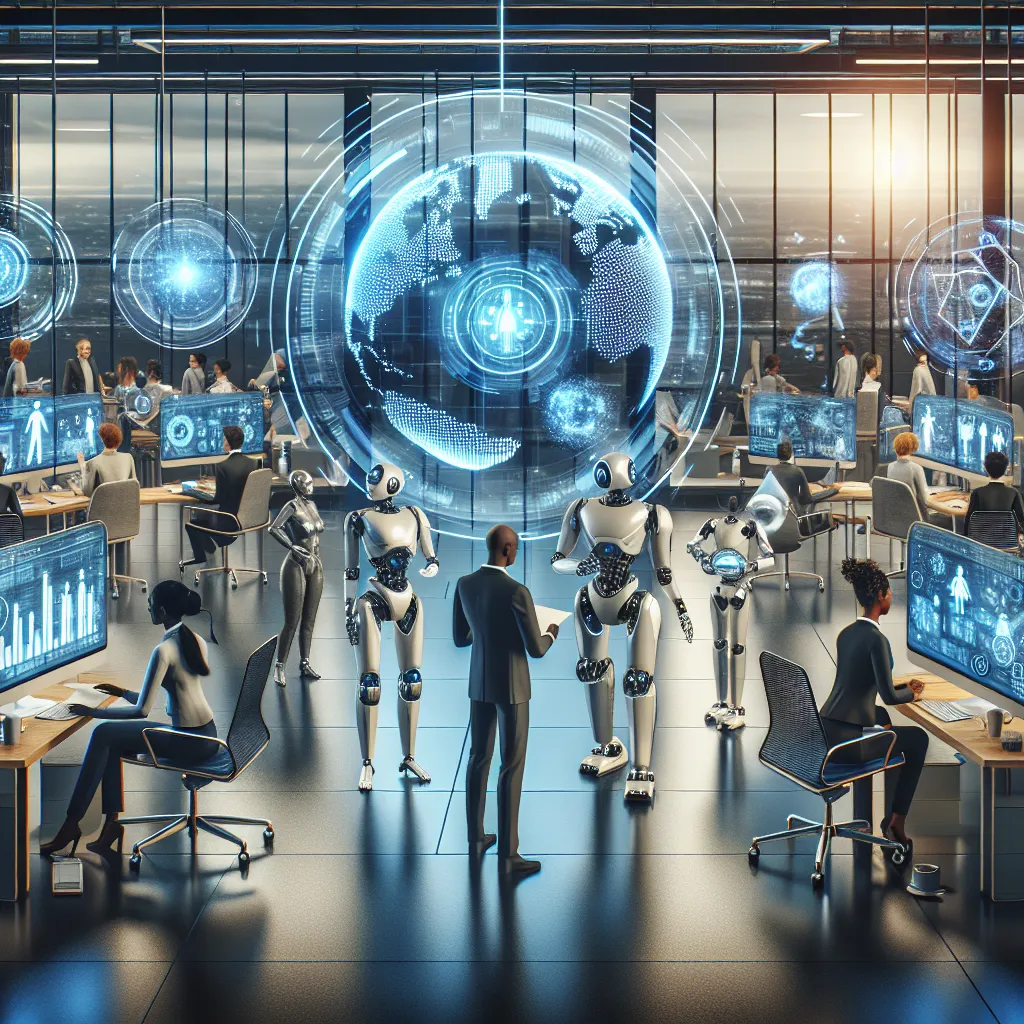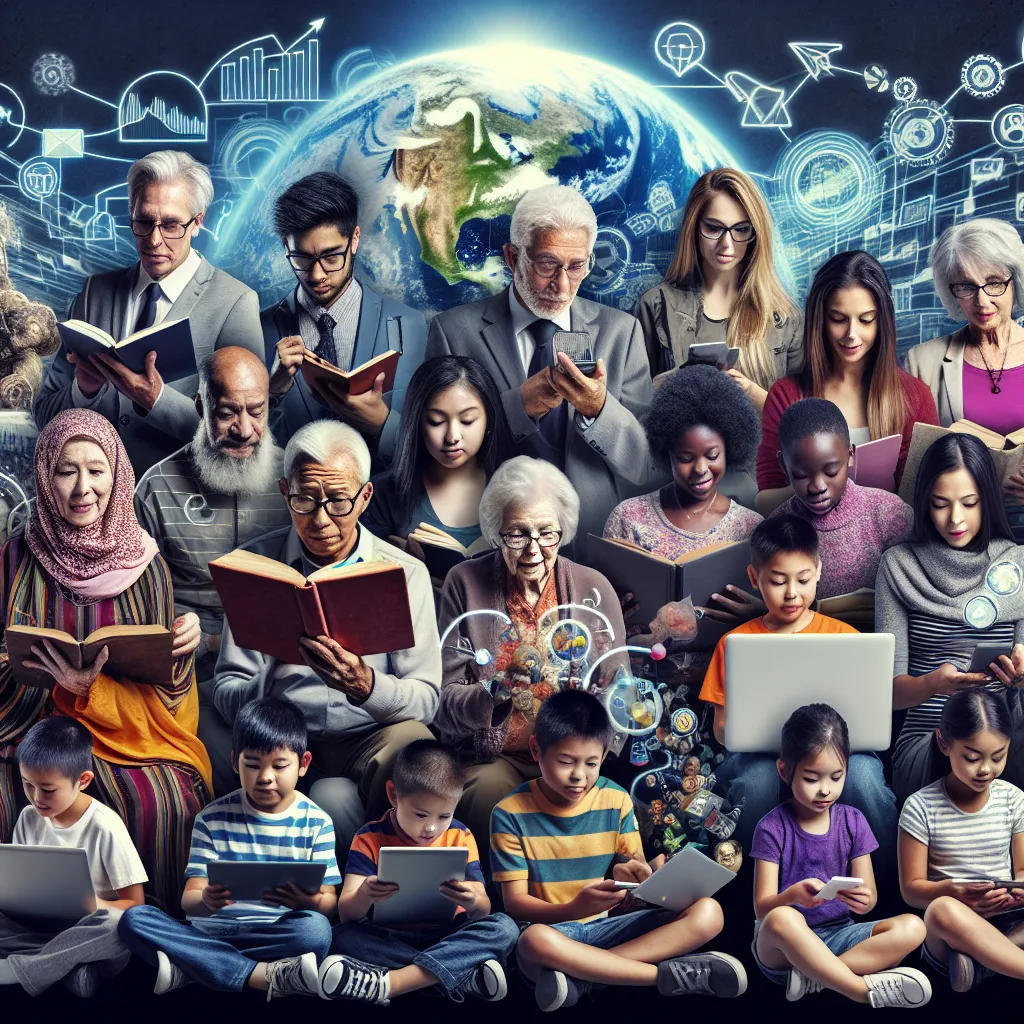The topic of “the effects of automation on job markets” is increasingly relevant in today’s rapidly evolving technological landscape. This theme has appeared in various forms in past IELTS Writing Task 2 questions and is likely to continue being a popular subject for future exams. Based on recent trends, we can expect to see questions that explore the impact of automation on employment, the skills required in an automated workforce, and the societal implications of this technological shift.
Nội dung bài viết
Let’s examine a sample question that closely resembles those seen in recent IELTS exams:
Some people think that in the future, machines will do most of the work and humans will have very little to do. To what extent do you agree or disagree with this view?
Analyzing the Question
This question requires candidates to consider the long-term effects of automation on employment. Key points to address include:
- The extent of job displacement due to automation
- The types of jobs that might be affected
- The potential for new job creation in response to automation
- The changing nature of work and required skills
- The societal and economic implications of widespread automation
Sample Essay: Band 8-9 Response
Technological advancements have undoubtedly transformed the way we work, leading some to predict a future where machines dominate the workforce. While I acknowledge that automation will significantly impact job markets, I disagree with the notion that humans will have very little to do in the future.
Firstly, it is true that many routine and repetitive tasks are likely to be automated, potentially displacing workers in sectors such as manufacturing, data entry, and customer service. For instance, self-checkout systems in supermarkets have already reduced the need for human cashiers. However, this does not necessarily mean that human labor will become obsolete. Instead, the nature of work is likely to evolve, with a greater emphasis on skills that machines cannot easily replicate, such as creativity, emotional intelligence, and complex problem-solving.
Moreover, the rise of automation is likely to create new job opportunities in fields related to developing, maintaining, and improving automated systems. As technology advances, there will be an increased demand for professionals in areas like artificial intelligence, robotics, and data analysis. This shift may lead to a redistribution of the workforce rather than widespread unemployment.
It is also important to consider that many aspects of human interaction and decision-making cannot be fully replicated by machines. Jobs that require empathy, nuanced communication, and ethical judgement, such as healthcare providers, teachers, and social workers, are likely to remain predominantly human-driven. Additionally, sectors like the arts, entertainment, and personal services may continue to value the human touch, even in an increasingly automated world.
However, to adapt to this changing landscape, there will be a need for continuous learning and skill development. Educational systems and workplace training programs will need to evolve to equip people with the skills required in an automated economy. This may include a greater focus on critical thinking, adaptability, and interdisciplinary knowledge.
In conclusion, while automation will undoubtedly reshape job markets, it is unlikely that humans will be left with very little to do. The future of work is more likely to be characterized by a symbiotic relationship between humans and machines, where each leverages their unique strengths. The key to thriving in this future lies in our ability to adapt, learn, and focus on distinctly human capabilities.
(Word count: 368)
 Future workplace with humans and robots
Future workplace with humans and robots
Sample Essay: Band 6-7 Response
In recent years, technology has changed many aspects of our lives, including the way we work. Some people believe that in the future, machines will do most jobs and humans will have little work to do. I partly agree with this view, but I think the situation is more complicated.
It is true that machines and computers are taking over many jobs. For example, in factories, robots can now do a lot of work that humans used to do. This is also happening in offices, where computers can do tasks like data entry much faster than people. This trend might continue in the future, and more jobs could be lost to machines.
However, I don’t think humans will be left with nothing to do. There are many jobs that require human skills that machines can’t easily copy. For instance, jobs that need creativity, like artists or writers, will probably still be done by humans. Also, jobs that need human interaction, like teachers or nurses, are hard to replace with machines.
Another point is that new types of jobs might be created because of technology. As we get more machines and computers, we will need people to design, build, and fix them. So, while some jobs might disappear, new ones could appear.
On the other hand, there is a risk that many people could lose their jobs if they don’t learn new skills. It’s important for people to keep learning and adapting to new technology so they can find work in the future.
In conclusion, while machines will probably do more work in the future, I don’t think humans will be left with very little to do. The types of jobs might change, but there will still be work for people who can adapt and use skills that machines don’t have.
(Word count: 295)
Key Writing Tips
-
Essay Structure: Both essays follow a clear structure with an introduction, body paragraphs, and a conclusion. The Band 8-9 essay demonstrates more sophisticated paragraph development and transitions.
-
Vocabulary:
- Band 8-9: Uses a wide range of vocabulary accurately and effectively (e.g., “symbiotic relationship”, “nuanced communication”).
- Band 6-7: Uses adequate vocabulary with some attempt at less common words (e.g., “adapting”, “interaction”).
-
Grammar:
- Band 8-9: Demonstrates a variety of complex structures with flexibility and accuracy.
- Band 6-7: Uses a mix of simple and complex sentences with some errors that do not impede communication.
-
Task Response:
- Band 8-9: Fully addresses all parts of the task with a well-developed position and relevant examples.
- Band 6-7: Addresses the main parts of the task but may lack some depth or specificity in examples.
-
Coherence and Cohesion:
- Band 8-9: Ideas are logically organized with clear progression throughout the essay.
- Band 6-7: Has a clear overall progression but may lack some cohesive devices.
Important Vocabulary to Remember
-
Automation (noun) /ˌɔːtəˈmeɪʃn/: The use of machines or computers to do work that was previously done by people.
-
Displacement (noun) /dɪsˈpleɪsmənt/: The act of forcing something out of its usual place.
-
Obsolete (adjective) /ˈɒbsəliːt/: No longer used because something new has been invented.
-
Adaptability (noun) /əˌdæptəˈbɪləti/: The quality of being able to change or be changed to fit new situations.
-
Symbiotic (adjective) /ˌsɪmbaɪˈɒtɪk/: Involving interaction between two different organisms living in close physical association.
-
Empathy (noun) /ˈempəθi/: The ability to understand and share the feelings of another.
-
Redistribution (noun) /ˌriːdɪstrɪˈbjuːʃn/: The act of sharing something out differently.
-
Nuanced (adjective) /ˈnjuːɑːnst/: Characterized by subtle shades of meaning or expression.
Conclusion
The impact of automation on job markets is a complex and evolving topic that is likely to remain relevant in IELTS Writing Task 2. Future questions might explore related themes such as:
- The role of government in managing job displacement due to automation
- The ethical implications of replacing human workers with machines
- The impact of automation on income inequality and social structures
To prepare for such topics, practice writing essays that consider multiple perspectives and provide specific examples. Remember to balance your discussion of potential challenges with possible solutions or adaptations.
We encourage you to practice writing an essay on this topic and share it in the comments section below. This active engagement will help you improve your writing skills and prepare effectively for the IELTS exam.
For more insights on related topics, you might find these articles helpful:


